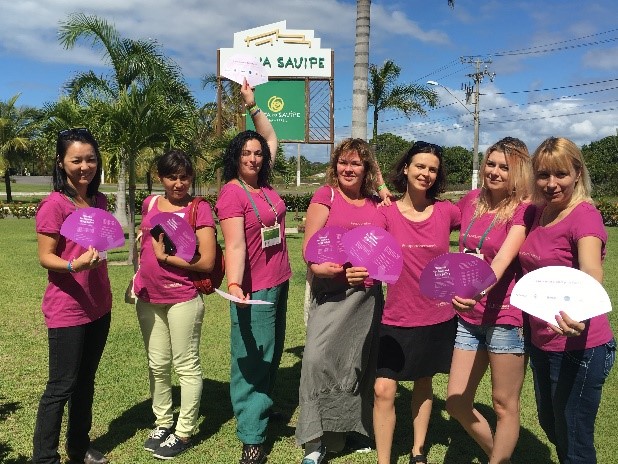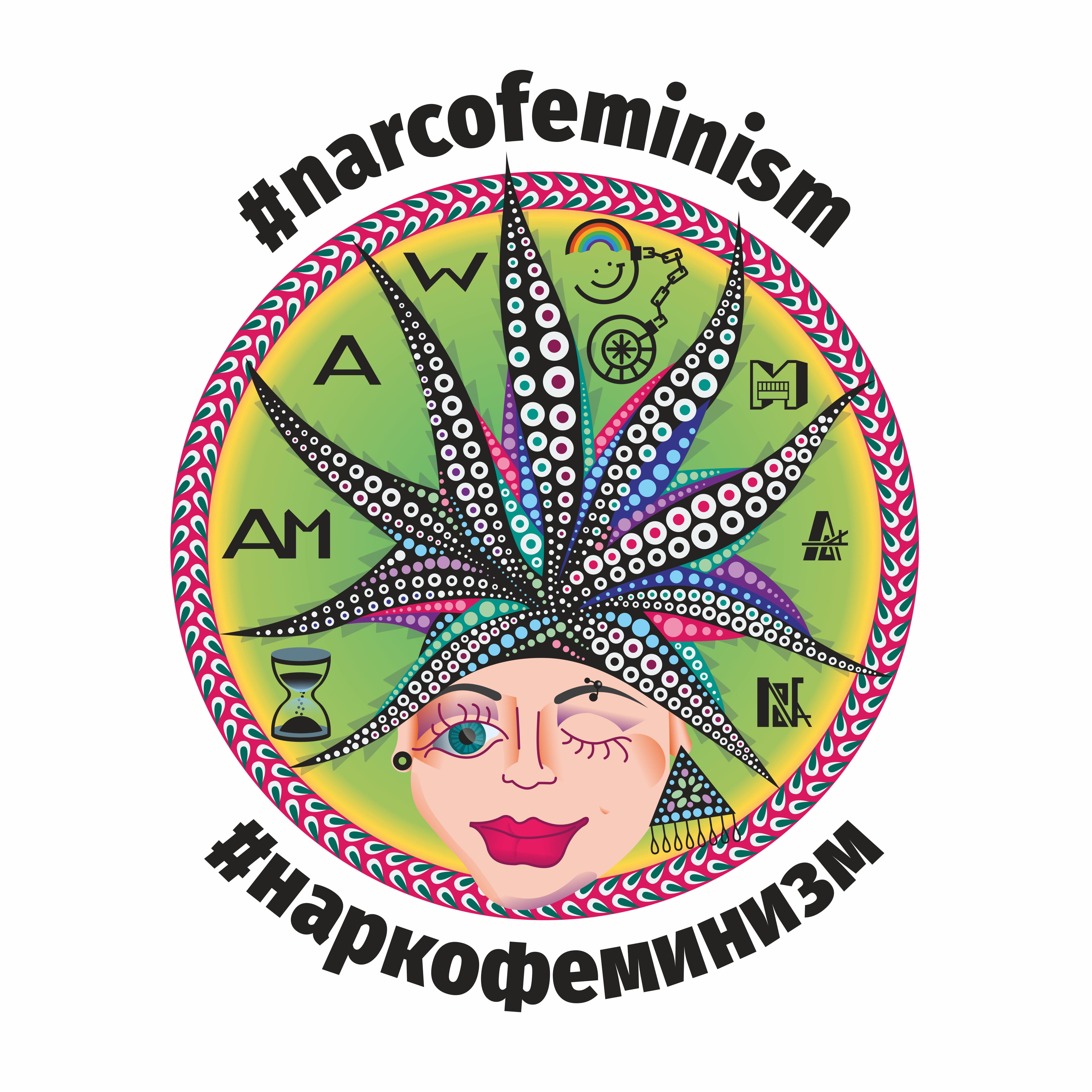In September 2016, during the International Forum of the Association for Women’s Rights in Development (AWID)[1] in Brazil, we met with feminist movements. We were curious to see women’s movements developing and to tell our own stories. About how painful and frightening it is to be a woman who uses psychoactive substances. About the state systematically violating our reproductive and parental rights, with targeted gender-based violence becoming the norm in our countries.
We organised sessions where we talked about how difficult it was to get access to shelters for women who suffered violence, because many assistance programs are off limits for women who use drugs. We talked about our achievements and research on violence. The campaign slogan – Women for humane drug policy – inspired Forum participants to ask us questions and to learn about the terrible consequences repressive drug policies have for women.
At the same time, feminist campaigners from different communities shared their touching and tragic stories with us. One of the discoveries of the feminist Forum was the “Who will defend the defenders” program, which includes psychological, physical and moral recuperation for Women Human Rights Defenders in a safe environment with professional support.
In 2016, just like today, our women leaders have “burned out” one by one. Thinking of oneself as stigmatized increases the feeling of guilt about letting one’s family and community down. Many are working for 14 hours a day to be able to pay for most basic things. Understanding that personal stories work and are important for advocacy, but at the same time being scared of revealing one’s own identity because society will be quick to judge.
After the first article about a female client of a substitution treatment program was published in Kazakhstan in 2017, the woman in question called us in tears and said that doctors and nurses at the OST site had met her with shouting and ridicule. How could she, a woman, say “such a thing” about herself (by “such a thing” they meant the fact that the woman was receiving methadone treatment). We were able to remove the article from online sources. But the wound caused by the doctors’ reaction could not be healed. Just like wounds caused by insults thrown by teachers and neighbors who forbid their children from playing with our kids.
In a society where the “role” of women is defined by religion, social gender norms and stereotypes, self-fulfillment leads to some expected negative consequences: guilt, inhibition, feeling that something’s wrong with you as a daughter or sister or mother or wife, and low self-esteem. As a result, women tend to overdose and despair, they use stronger substances in order to forget. Instead of getting help, women get kicked out of the house and get longer prison sentences. If a woman is found to have been a drug user, she is faced with situations where others are able to exploit the topic of drug use for a long period of time, manipulating the woman and limiting her ability to make independent decisions.
It’s very difficult to mentally, emotionally, physically and financially make it through such situations without support.
On 9th May, 2018, nine women met in Berlin, to start stronger cooperation on inclusion of drug policy agenda into feminists agenda and vice versa. The meeting was initiated by the Association for Women’s Rights in Development (AWID) – a global, feminist, membership, movement-support organization.
It was the place, where the name of our movement was born.
# Narcofeminists

[1] The Association for Women’s Rights in Development (AWID) is a global, feminist, membership, movement-support organization.
